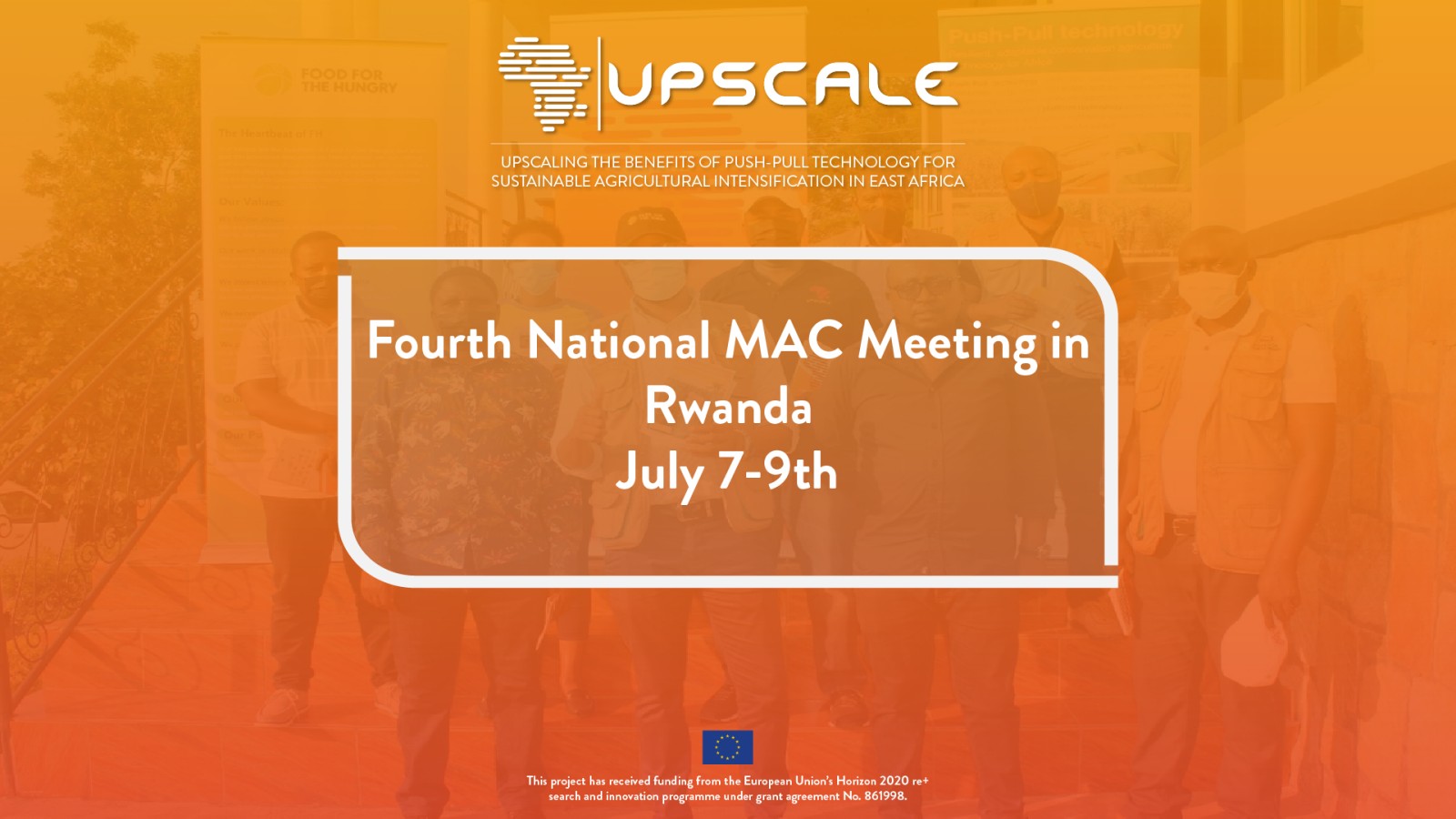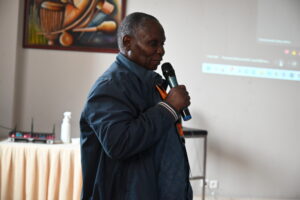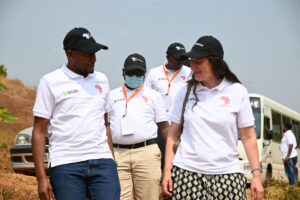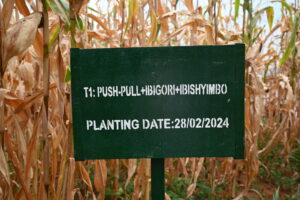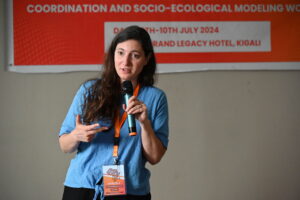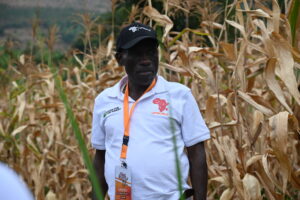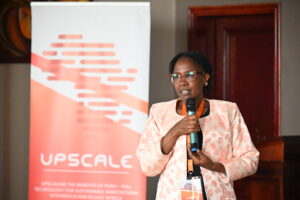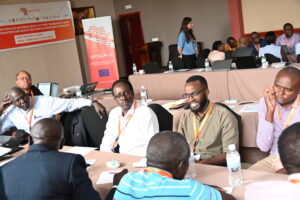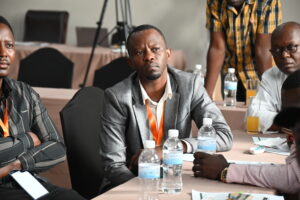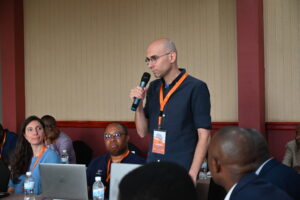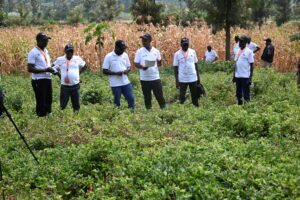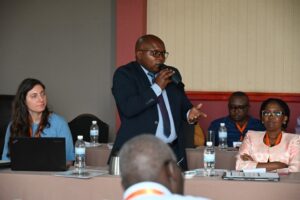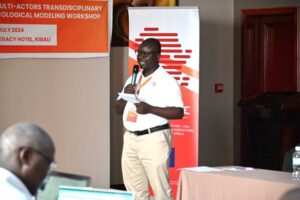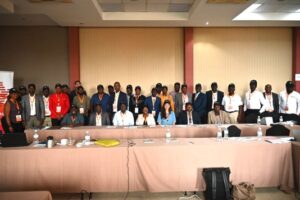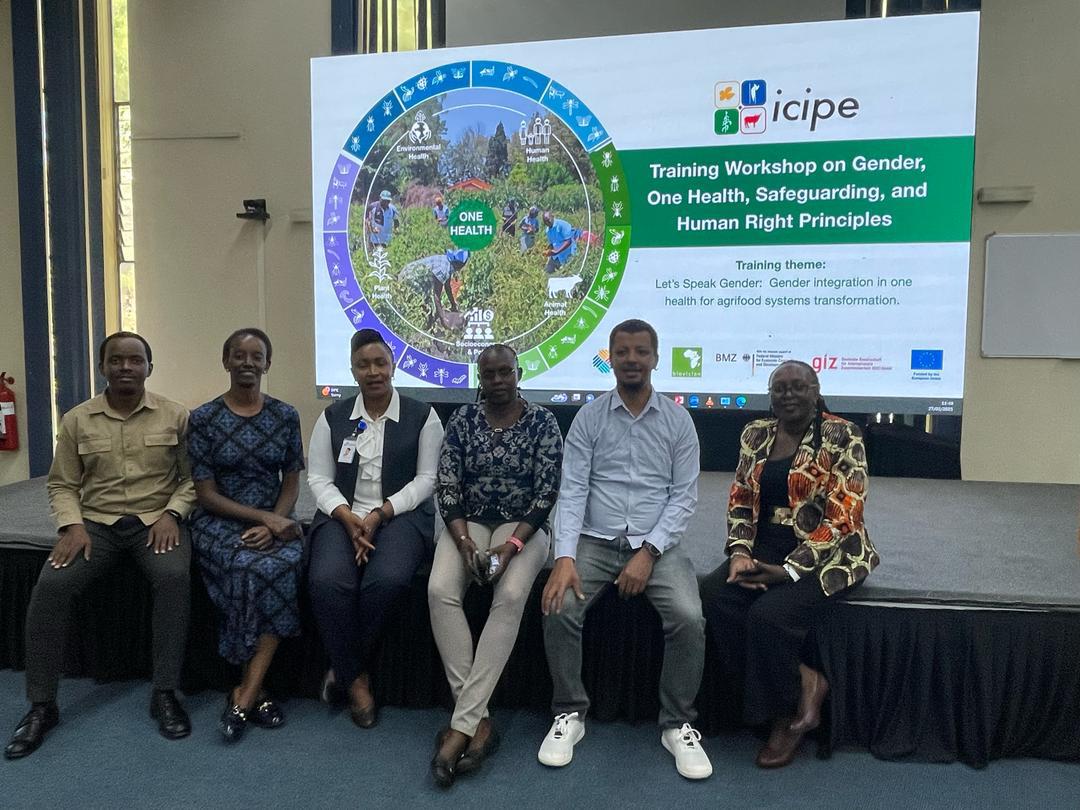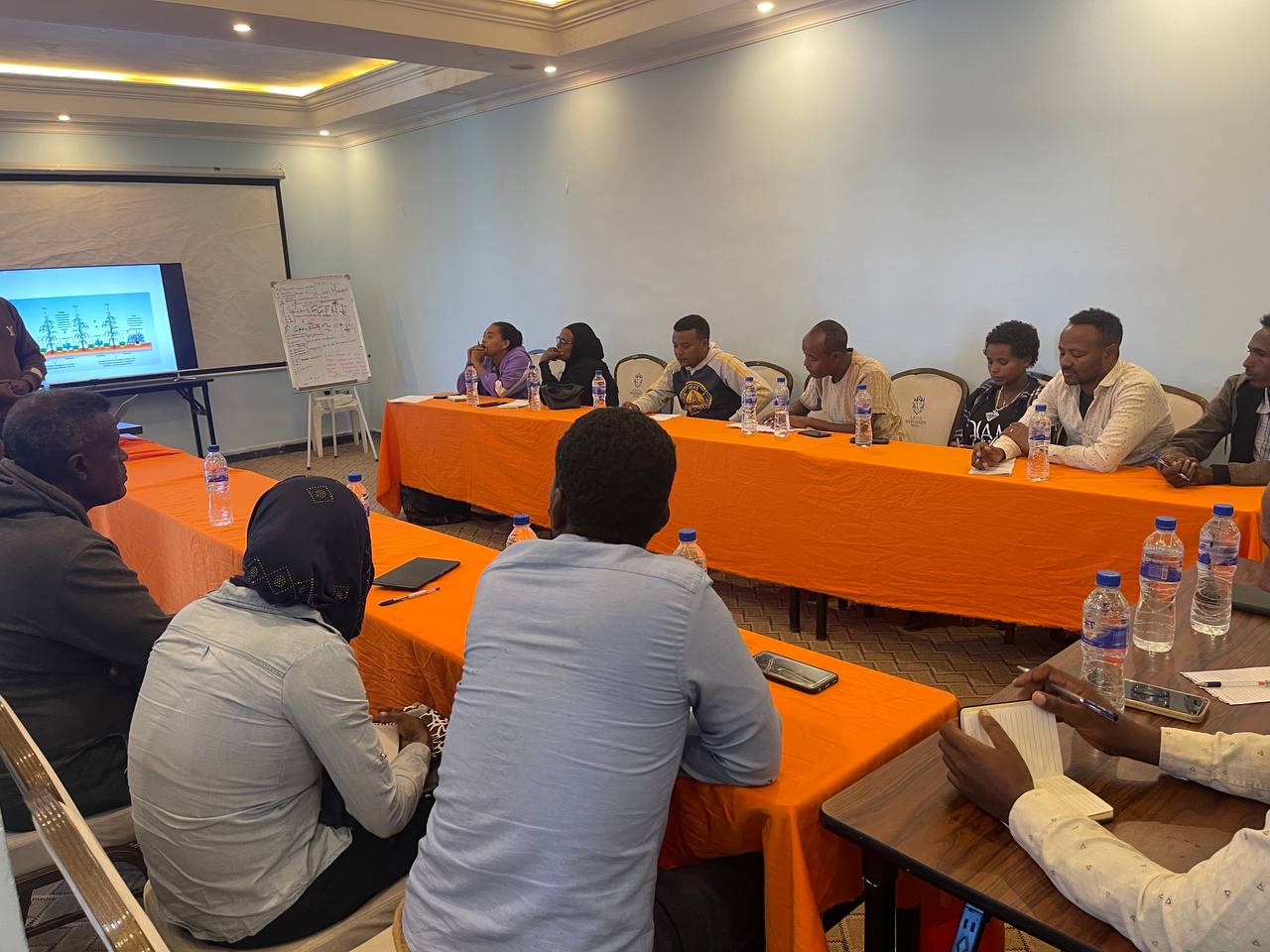Name of the event: The 4th National MAC Meeting in Rwanda and socio-ecological validation with stakeholders
Date: The 4th National MAC Meeting took place from 7th to 9th July 2024
Venue: The meeting was held in Kigali, Rwanda and it was co-hosted by Food for the Hungry and Rwanda Agriculture and Animal Resources Board (RAB). It was intended to increase awareness and, therefore, encourage stakeholders’ commitment to the implementation and implementation of push-pull technology (PPT).
The meeting brought together different agriculture value chain players ranging from farmers (producers) to policymakers (Ministry of Agriculture and RAB). The 40 people attended including Rwanda MAC members, Maseno University as the lead of WP1, WP5 Leaders, UPSCALE Project coordinator and other high-level professionals. The 4th National MAC Meeting was officially opened and closed by the Director General of RAB.
The overall objective of this event was to promote the benefits of push-pull, exchange ideas and good agroecological practices, share project updates, challenges, and solutions and monitor the progress of upcoming activities. Everything listed aimed to increase awareness and adoption of push-pull technology in the wider farming communities of Rwanda.
The meeting was organized in two sections. The first one was organized in the form of in-person meetings and group discussions and the second one was in the form of field visits to the push-pull sites in Gatsibo District.
The first section was held by the Food for the Hungry with the presentation encompassing achievements, ongoing activities and recommendations from Rwanda MAC. Besides FH, Maseno University presented through a group discussion facilitated by dr Fredrick Aila and looked at the validation of the country scorecard tool. The second section, the visit, aimed to see the progress of technology adoption, execution of recommendations from previous visits and some of the challenges that farmers meet daily.
Regarding the previous recommendation from MAC, farmers argued not to look at PPT as technology for maize so that farmers are not confined to maize growing only. Many farmers embraced this and pledged to keep the push-pull field while rotating with other crops. The farmers who have started establishing PPT plots with other crops like Climbing beans and tomatoes said that PPT is a great way of defeating a black aphid, that attacks beans.
In the context of UPSACLE Socio-ecological model validation with stakeholders, it has been noted that all the identified members are interested and affected to a certain extent by push-pull technology. At the same time, the majority receives benefits from it, and the conflict is minimal. This analysis demonstrates that the community is fully committed to advocating for push-pull technology as evident from the challenges faced.
Welcome remarks from the FH Rwanda Country Director – Alice Kamau
Alice Kamau, while warmly welcoming the participants, promised that Food for the Hungry continues to be a collaborative partner to UPSCALE in order to promote the benefits of PPT to many farmers in the communities.
She added:
“This technology provides holistic benefits to farmers not only for food security but also on environmental protection, water conservation as climate resilient techniques for continuous sustainable agriculture production.“
Alice concluded by requesting the civil society organisations, and other agricultural organizations to disseminate this technology to their farmer beneficiaries as widely as possible. As she mentioned, this will increase awareness of this technology to other farmers and enhance quicker adoption. She urged the participants to feel at home and be interactive in the discussions.
Project status and drawing its sustainability
Professor Emily, the Project Coordinator, emphasized that achieving sustainability in the project goes beyond just managing the financial budget. She highlighted the importance of diversifying and strengthening working relationships with stakeholders to ensure the project’s long-term success.
She further said:
“The project is ending one year from now, but the activities of the project based on its benefits would remain and scaled up.”
While addressing the event dr Telesphore, Director General of RAB, expressed his gratitude to the project leaders who thought about Rwanda and selected it to host this technology. He emphasized the significance of PPT and recommended its inclusion as an integral part of the extension package for crops, livestock, soil and water conservation.
Dr Telesphore concluded the meeting by arguing for all the participants to engage in impactful deliberations and uphold collaborative efforts from all stakeholders, including the policymakers, in the agriculture sector.
Key Challenges
The main challenges identified for the adoption of PPT include the following:
- High initial costs are required to establish a PPT plot.
- Climate change impacts.
- A scarcity of nurseries and a small number of merchants that distribute seed inputs for PPT.
- Problems of phasing PPT with other crops.
- Less prominent visibility of PPT and poor monitoring of the inputs it receives.
- The market in which raw materials are utilized in producing PPT inputs is still too liberal and lacks regulations. This unfortunately proved to be a major issue since the market for Desmodium and Brachiaria fodder was very limited.
- Availability of small portions of land to be targeted for PPT.
Recommendations and Future Actions
To address these challenges, MAC participants agree to propose the following recommendations:
- Local production of seeds with the assistance of a quality control bureau.
- Setting up even more trials to demonstrate practical advantages to the farmers.
- Enabling farmers to access seeds readily and also getting seeds at a relatively cheap cost.
- Establishing the frameworks from which PPT policies are made.
- Certification of Desmodium seeds.
- Capacity building of the farmers to multiply the desmodium seeds.
- Availability – coordinating the producers with the market.
- Incorporation of PPT in the crop intensification interventions and enhancement of fodder development.
Since its formation in July 2021, the MAC has contributed a lot in exchanging information, organizing and expanding UPSCALE activities, and promoting PPT and other agroecology practices. Currently, over 2000 farmers have adopted this technology and expanded the reach from one district to 7 districts.
The event concluded that the UPSCALE partners would continue to research and disseminate information and skills on various agroecological techniques, especially PPT among partners and other key stakeholders. The project will seek to increase the project stakeholders’ awareness and adoption to extend the benefits of push-pull to as many farmers as possible.
Read the Practice Abstract here.

